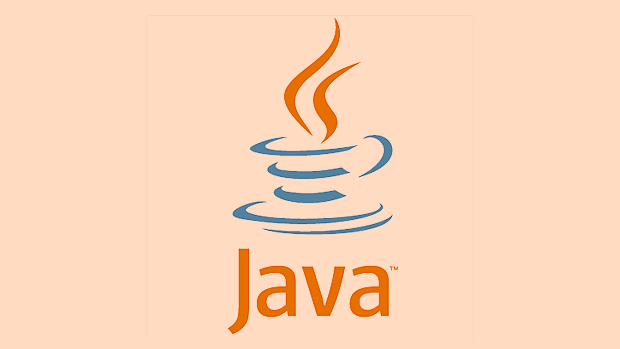Java中的線程安全:'揮發性”和'同步”指南
volatile和synchronized在Java中都解決線程安全問題,但作用不同:1. volatile保證變量的可見性,確保多線程下讀寫直接與主內存交互,適用於狀態標誌等單次讀寫場景,但不提供原子性;2. synchronized提供原子性和可見性,通過互斥鎖確保同一時間只有一個線程執行代碼塊,適用於復合操作如count ;3. volatile不能替代synchronized,對於非原子操作仍需synchronized或使用AtomicInteger等並發工具類,正確選擇工具可確保線程安全且高效。

In Java, thread safety is critical when multiple threads access shared data. Without proper synchronization, programs can exhibit unpredictable behavior due to race conditions, visibility issues, and inconsistent state. Two key tools for managing thread safety are volatile and synchronized . While both help with concurrency, they serve different purposes and are not interchangeable.

Let's break down how each works, when to use them, and what problems they solve.
What Is the volatile Keyword?
The volatile keyword ensures visibility of changes to variables across threads. When a variable is declared volatile , it tells the JVM:

- Writes to this variable are immediately flushed to main memory.
- Reads of this variable always come from main memory, not from a thread's local cache.
This prevents threads from using stale cached values — a common issue in multi-threaded environments.
Example: Using volatile
public class VolatileExample {
private volatile boolean running = true;
public void stop() {
running = false;
}
public void run() {
while (running) {
// do work
}
System.out.println("Stopped");
}
} In this example, one thread calls run() and another calls stop() . Without volatile , the run() thread might never see the updated value of running because it could be cached in CPU memory. With volatile , the change is guaranteed to be visible.

When to Use volatile
Use volatile when:
- The variable is read and written by multiple threads.
- The variable does not depend on its previous value (ie, no compound operations like
count). - You only need visibility , not atomicity.
❌ Don't use
volatilefor operations likex— they are not atomic even if the variable is volatile.
What Is the synchronized Keyword?
synchronized provides both mutual exclusion (only one thread can execute the block/method at a time) and visibility (changes made inside the synchronized block are visible to other threads).
It can be applied to:
- Instance methods (locks on the instance)
- Static methods (locks on the class object)
- Code blocks (with a specified lock object)
Example: Using synchronized
public class Counter {
private int count = 0;
public synchronized void increment() {
count ; // atomic operation due to synchronization
}
public synchronized int getCount() {
return count;
}
} Here, synchronized ensures that only one thread can execute increment() or getCount() at a time, preventing race conditions on count .
How synchronized Ensures Visibility
When a thread enters a synchronized block, it acquires the monitor lock and:
- Flushes its local cache.
- Reloads variables from main memory.
When it exits, it writes changes back to main memory. So, like volatile , it guarantees visibility — but with added atomicity.
Key Differences: volatile vs synchronized
| Feature | volatile | synchronized |
|---|---|---|
| Atomicity | No (only for single read/write) | Yes (entire block/method) |
| Visibility | Yes | Yes |
| Mutual Exclusion | No | Yes |
| Performance | Lightweight | Heavier (monitor locking) |
| Applicable to | Variables only | Methods and code blocks |
Common Pitfalls and Best Practices
- ✅ Use
volatilefor state flags (eg,shutdownRequested,initialized). - ✅ Use
synchronizedwhen you need atomicity (eg, incrementing, updating multiple variables). - ❌ Don't assume
volatilemakes compound operations safe. - ❌ Avoid overusing
synchronized— it can cause contention and reduce performance.
Example: Why volatile Isn't Enough for count
public class BadCounter {
private volatile int count = 0;
public void increment() {
count ; // Not atomic: read, increment, write
}
} Even though count is volatile , count involves three steps. Two threads could read the same value, leading to lost updates. You need synchronized or AtomicInteger .
Alternatives: AtomicInteger , ReentrantLock , etc.
For better performance and flexibility, consider:
-
AtomicInteger,AtomicLong, etc. — provide atomic operations without blocking. -
java.util.concurrent.locks.ReentrantLock— more control thansynchronized.
Example with AtomicInteger :
private AtomicInteger count = new AtomicInteger(0);
public void increment() {
count.incrementAndGet(); // thread-safe and efficient
}Summary
- Use
volatilefor simple shared flags where you need visibility but not atomicity. - Use
synchronizedwhen you need both atomicity and visibility , especially for compound operations. - Understand that
volatiledoesn't replacesynchronized— they solve different parts of the concurrency puzzle.
Thread safety isn't just about preventing crashes — it's about ensuring correctness under concurrent access. Choosing the right tool ( volatile , synchronized , or atomic classes) makes your code both safe and efficient.
以上是Java中的線程安全:'揮發性”和'同步”指南的詳細內容。更多資訊請關注PHP中文網其他相關文章!

熱AI工具

Undress AI Tool
免費脫衣圖片

Undresser.AI Undress
人工智慧驅動的應用程序,用於創建逼真的裸體照片

AI Clothes Remover
用於從照片中去除衣服的線上人工智慧工具。

Clothoff.io
AI脫衣器

Video Face Swap
使用我們完全免費的人工智慧換臉工具,輕鬆在任何影片中換臉!

熱門文章

熱工具

記事本++7.3.1
好用且免費的程式碼編輯器

SublimeText3漢化版
中文版,非常好用

禪工作室 13.0.1
強大的PHP整合開發環境

Dreamweaver CS6
視覺化網頁開發工具

SublimeText3 Mac版
神級程式碼編輯軟體(SublimeText3)
 Java虛擬線程性能基準測試
Jul 21, 2025 am 03:17 AM
Java虛擬線程性能基準測試
Jul 21, 2025 am 03:17 AM
虚拟线程在高并发、IO密集型场景下性能优势显著,但需注意测试方法与适用场景。1.正确测试应模拟真实业务尤其是IO阻塞场景,使用JMH或Gatling等工具对比平台线程;2.吞吐量差距明显,在10万并发请求下可高出几倍至十几倍,因其更轻量、调度高效;3.测试中需避免盲目追求高并发数,适配非阻塞IO模型,并关注延迟、GC等监控指标;4.实际应用中适用于Web后端、异步任务处理及大量并发IO场景,而CPU密集型任务仍适合平台线程或ForkJoinPool。
 如何在Windows中設置Java_home環境變量
Jul 18, 2025 am 04:05 AM
如何在Windows中設置Java_home環境變量
Jul 18, 2025 am 04:05 AM
tosetjava_homeonwindows,firstLocateThejDkinStallationPath(例如,C:\ programFiles \ java \ jdk-17),tencreateasyemystemenvironmentvaria blenamedjava_homewiththatpath.next,updateThepathvariaby byadding%java \ _home%\ bin,andverifyTheSetupusingjava-versionAndjavac-v
 如何使用JDBC處理Java的交易?
Aug 02, 2025 pm 12:29 PM
如何使用JDBC處理Java的交易?
Aug 02, 2025 pm 12:29 PM
要正確處理JDBC事務,必須先關閉自動提交模式,再執行多個操作,最後根據結果提交或回滾;1.調用conn.setAutoCommit(false)以開始事務;2.執行多個SQL操作,如INSERT和UPDATE;3.若所有操作成功則調用conn.commit(),若發生異常則調用conn.rollback()確保數據一致性;同時應使用try-with-resources管理資源,妥善處理異常並關閉連接,避免連接洩漏;此外建議使用連接池、設置保存點實現部分回滾,並保持事務盡可能短以提升性能。
 在Java中實現鏈接列表
Jul 20, 2025 am 03:31 AM
在Java中實現鏈接列表
Jul 20, 2025 am 03:31 AM
實現鍊錶的關鍵在於定義節點類並實現基本操作。 ①首先創建Node類,包含數據和指向下一個節點的引用;②接著創建LinkedList類,實現插入、刪除和打印功能;③append方法用於在尾部添加節點;④printList方法用於輸出鍊錶內容;⑤deleteWithValue方法用於刪除指定值的節點,處理頭節點和中間節點的不同情況。
 Java微服務服務網格集成
Jul 21, 2025 am 03:16 AM
Java微服務服務網格集成
Jul 21, 2025 am 03:16 AM
ServiceMesh是Java微服務架構演進的必然選擇,其核心在於解耦網絡邏輯與業務代碼。 1.ServiceMesh通過Sidecar代理處理負載均衡、熔斷、監控等功能,使開發聚焦業務;2.Istio Envoy適合中大型項目,Linkerd更輕量適合小規模試水;3.Java微服務應關閉Feign、Ribbon等組件,交由Istiod管理服務發現與通信;4.部署時確保Sidecar自動注入,注意流量規則配置、協議兼容性、日誌追踪體系建設,並採用漸進式遷移和前置化監控規劃。
 高級Java收集框架優化
Jul 20, 2025 am 03:48 AM
高級Java收集框架優化
Jul 20, 2025 am 03:48 AM
为提升Java集合框架性能,可从以下四点优化:1.根据场景选择合适类型,如频繁随机访问用ArrayList、快速查找用HashSet、并发环境用ConcurrentHashMap;2.初始化时合理设置容量和负载因子以减少扩容开销,但避免内存浪费;3.使用不可变集合(如List.of())提高安全性与性能,适用于常量或只读数据;4.防止内存泄漏,使用弱引用或专业缓存库管理长期存活的集合。这些细节显著影响程序稳定性与效率。
 比較Java框架:Spring Boot vs Quarkus vs Micronaut
Aug 04, 2025 pm 12:48 PM
比較Java框架:Spring Boot vs Quarkus vs Micronaut
Aug 04, 2025 pm 12:48 PM
前形式攝取,quarkusandmicronautleaddueTocile timeProcessingandGraalvSupport,withquarkusoftenpernperforminglightbetterine nosserless notelless centarios.2。
 用雅加達EE在Java建立靜止的API
Jul 30, 2025 am 03:05 AM
用雅加達EE在Java建立靜止的API
Jul 30, 2025 am 03:05 AM
SetupaMaven/GradleprojectwithJAX-RSdependencieslikeJersey;2.CreateaRESTresourceusingannotationssuchas@Pathand@GET;3.ConfiguretheapplicationviaApplicationsubclassorweb.xml;4.AddJacksonforJSONbindingbyincludingjersey-media-json-jackson;5.DeploytoaJakar







